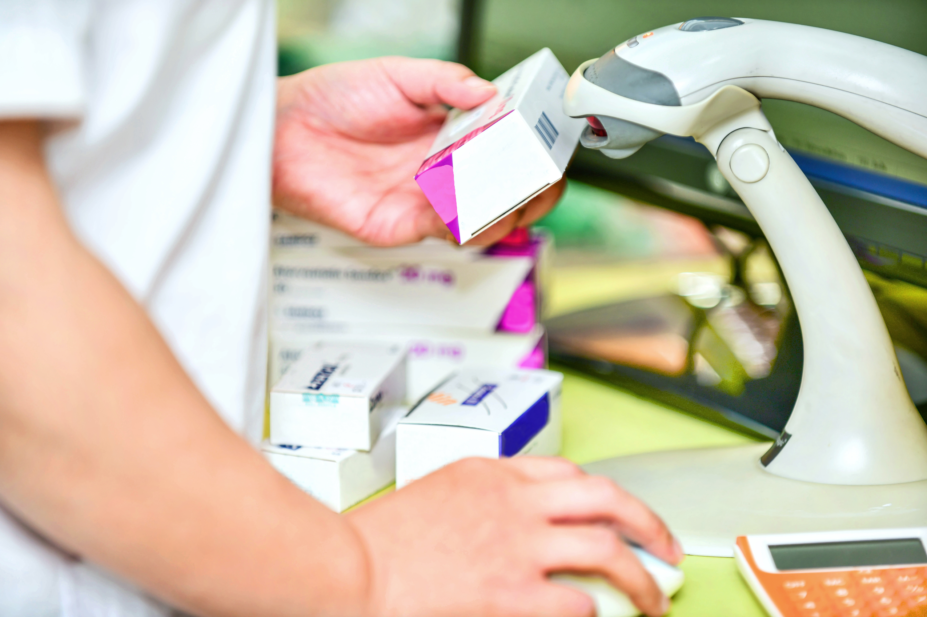
Shutterstock.com

Source: Shutterstock.com
The European Medicines Verification System, the Europe-wide computer programme used to implement the Falsified Medicines Directive, was inaccessible to UK pharmacists for around one hour on the morning on 11 February 2019, two days after the scheme’s launch
The computer system for the Falsified Medicines Directive (FMD) crashed on the first weekday morning after its 9 February 2019 launch.
The European Medicines Verification System (EMVS), the Europe-wide database that holds all information on FMD-compliant medicine packs, was inaccessible to UK pharmacists for around one hour on the morning on 11 February 2019, according to the EMVS website.
Alex Jennings, assistant clinical director of pharmacy at Aintree University Hospital NHS Foundation Trust, alerted the The Pharmaceutical Journal to the outage after experiencing difficulties with the system on the Monday morning.
Jennings said that while the system was down he had been unable to access any information on the reason for the outage or how long it was expected to last.
He added that the lack of information on technical problems could present difficulties for dispensing pharmacies if there was no information on how long the outage was likely to last.
“My concern, if this happens again, is for community pharmacists who have to decommission at the point of supply with a patient standing in front of them,” he said.
According to the EMVS, the system was up and running again at 10:36.
In January 2019, the UK Working Group for Community Pharmacy advised pharmacists that in the event of system failure, pharmacists should keep a record of the unique identifiers on medicine packs dispensed and decommission them once the FMD system is operational again.
Under FMD, all compliant packs include a 2D barcode and a tamper-proof seal.
Community pharmacies contacted by The Pharmaceutical Journal on 11 January 2019 did not report system difficulties, but this may be owing to the small number of medicines to decommission.
Lila Thakerar, superintendent pharmacist at Shaftesbury Pharmacy in Harrow, north west London, said her pharmacy had spent at least £2,500 on the hardware required for the FMD and fulfilled all other requirements in order to be ready for its implementation on 9 February 2019.
“We are ready to use our scanners except there’s a major hurdle — the products that are coming in are not FMD compliant,” she said.
“So far, [I have] tens of thousands of dispensary stock, of which only one product is FMD compliant.”
Thakerar said pharmacies had faced a lot of unnecessary pressure to be ready for FMD.
“The process could have been introduced gradually without a final deadline,” she said. “A final deadline should have been provided once the products were available with the FMD-compliant products.”
Meir Kattan, pharmacist at Kalmak Pharmacy in Southwark, south London, said his pharmacy was also fully compliant, but he believed that the deadline for implementation could have been extended to avoid uncertainty.
“At the moment the situation is such that if we have a no-deal Brexit then the FMD is completely out of the water,” he said.
“The timing of FMD could have been delayed until the end of March [2019] when Brexit is due. We’re talking about six or seven weeks, and then we would have known whether to invest or not.”
The Pharmaceutical Journal reported in February 2019 that less than half of UK pharmacies were expected to be FMD-compliant on 9 February 2019, with a number of people citing uncertainty over Brexit as a major reason.
The Medicines and Healthcare products Regulatory Agency has said that in the event of a no-deal Brexit, the UK will be unable to access the EMVS and consequently will not be able to verify and authenticate medicines.
The European Medicines Verification Organisation has been contacted for comment.


